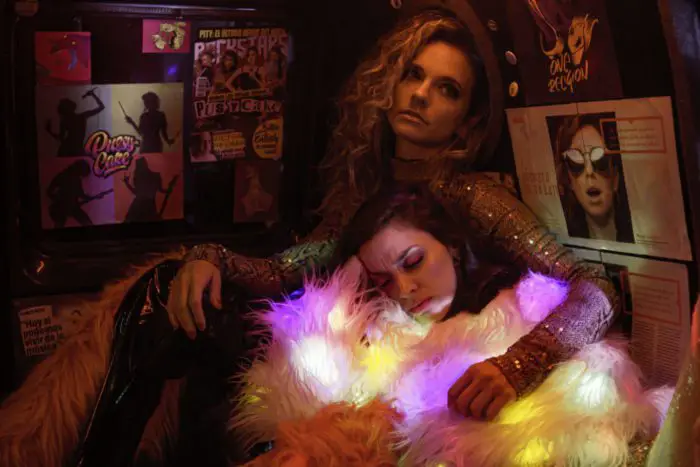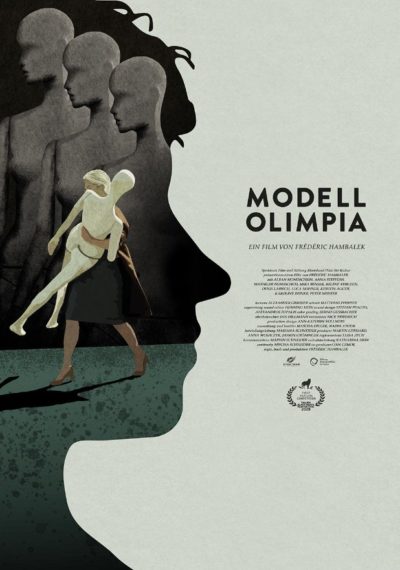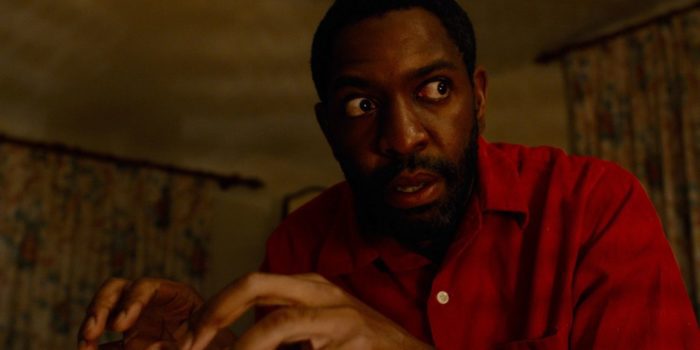With Chattanooga Film Festival now over, I wanted to wrap up on some of the other films I watched last week that deserve mention. Many of the movies I saw were better than your average independent film fest in quality and entertainment value. Though I mainly stuck to the headliners in this festival, there was a hell of an undercard. Chattanooga Film Festival has been one of my favorite festivals since I first attended in 2020, often supplying movies that make my personal top ten lists and movies I wouldn’t see anywhere else—films like Pussycake, Modell Olimpia, and The Creeping.
This year was no different. While I may not have seen everything I wanted to see, even with the surprise gift of an extra day, I did catch a great set of films. Cryo was an impressive career-defining start to Barrett Burgin’s feature-length directorial filmography and was rightly awarded the Special Jury Prize at the festival. Meanwhile, The Ones You Didn’t Burn took home the well-deserved award for Best Feature by a First-Time Director and is a definite contender for my top ten at the end of the year. The Leech took home Best Feature at the fest, and A Pure Place won Best International Feature. All of these are films I highly recommend.
Here are some other films I also wanted to share my thoughts on.
Pussycake
I became aware of Pussycake completely by accident. Scrolling through Raven Banner’s website and looking for upcoming films to discuss, I came upon Pablo Parés’ movie with a weird name and fun concept. Pussycake is the name of the film’s hard-rocking female band who go back out on tour to reignite their early success. When they get to the venue for their next show, they’re frustrated to find no one has shown up, not even to let them in. They stroll through the town and encounter demonic, vomit-spewing, otherworldly horrors from beyond.

The main focus of Pussycake is Elle (Maca Suarez), the band’s lead singer, as she attempts to reacclimate to life on the road full of grabby strangers after being traumatized as the victim of domestic violence. Luckily, she has bandmates and a tour manager that are like family to help her as she succumbs to nightmares stemming from an abusive past. With her bandmate, and girlfriend, Sara’s (Aldana Ruberto) support, the band makes their way to their next gig. Instead of hordes of fans, Elle and the rest of the group find a place where the violence of her nightmares runs rampant, filled with zombie-like creatures expelling milky vomit in projectile blasts. The girls are attacked and end up bottlenecked in a home, struggling to understand what is happening. With no other options, Elle and her friends have to fight their way out if they ever plan to have another show.
Parés’ film is pretty non-stop once it gets going, which is both good and bad. On the one hand, Pussycake leaves you breathlessly entertained, but there are a lot of little plot points that the movie steamrolls through and never provides further explanation. There are portals, people buried in the sand with only their heads sticking out, an ominous caped figure’s intentions, and more. It isn’t hard to put some of these pieces together, but there’s never any real clarification or altruistic heroics outside of the band circle, just a helluva lot of gore.
Pussycake’s creature effects are simple but extremely effective. The makeup department and costume design are gorgeous throughout, and the film’s art direction is stunning. A white light-up coat worn by Elle throughout the film is a perfect example. It looks perfect at the start of the movie and becomes a blood-stained reminder of their ordeal by the end.
Pussycake is a next-generation Evil Dead movie, employing slithering parasites as its possessors and creating a super visceral experience. Soaked with blood, guts, and gallons of mouth-to-mouth vomit, it’s a lot of fun if you’re okay to turn off your mind and enjoy a manically chaotic and disgusting horror experience that toes the line between stomach-churning and hilarious. This is the kind of midnight horror film that will absolutely obtain cult status upon its release. Pussycake doesn’t have a ton of character development or an incredibly profound message. Still, it is a rollicking badass thrill ride of wall-to-wall rock’n’roll carnage that will undoubtedly leave horror fans screaming for more.
Pussycake is coming to Screambox on August 30
Modell Olimpia
A sort of horror adjacent film, Modell Olimpia presents itself as a very dark and challenging psychological drama about the unique therapeutic care a Mother (Anna Steffens) develops for her disturbed Son (Alban Mondschein). The film is so clinical that none of the characters are even given names, just the attributions of what they are in the story.
From the start, the viewer is made aware that Son isn’t right. Mother plays audio of normal conversations between couples on tapes and pins up common heterosexual positions of couples in Son’s room. The scenes are confoundingly uncomfortable and made more so when the audience sees Son’s fantasies play out. Utilizing a body-length mirror, Son pleasures himself by watching as he chokes himself or a mannequin with a bathrobe waist tie.

The audience cautiously considers the alternatives, positively denying the notion of Son’s malicious intentions and theorizing an alternative lifestyle. Perhaps Son isn’t a monster, just into some BDSM that his controlling mother wishes to pivot him away from. And ever as Son makes friends with his Neighbor (Mathilde Bundschuh), we see this training having an effect, even if most of their interactions are shared with Mother. A storyline emerges about Son getting Neighbor’s watch fixed, showing Son’s good intentions. But as he gets excited about his newfound friend, his inclinations are exacerbated. Mother’s help methods begin spiraling out of control too, and the viewer is left to wonder if this therapy is calming Son’s obsessions or is enabling his rush?
The film is nearly as dry as the colorless palette of the apartment Son stays cooped up in all day, or like the arm’s length affection Mother instills with Son. However, that doesn’t mean it isn’t fascinating. The tone and the re-education mechanics of Modell Olimpia felt reminiscent of A Clockwork Orange if McDowell’s retraining sparked a sexual response instead of fear and panic. There’s also the nature vs. nurture theme the film asks us to consider, similar to that in Lynne Ramsay’s We Need to Talk About Kevin, especially during the build-up of Son’s violent proclivities that the audience knows is less a matter of if and only a question of when. And, whether intentional or not, perhaps there’s a hint of Dexter or Hannibal Lecter in both of those things as well.
Very well crafted with palpable dread billowing off each and every scene, Modell Olimpia will be a divisive and triggering film for audiences. Some will inherently ask why anyone would make a film like this, similar to the Cannes questions Lars Von Trier has come to expect. Those curious about the horrific inner workings of serial killers will find the film alarming but also see how much thought was put into allowing themself to navigate the darkest corners of a depraved mind.
After seeing the film, I felt the same way I did when seeing Von Trier’s Antichrist for the first time: overwhelmed. Modell Olimpia is a heavy film filled with magnificent shots and artistry but also considerably vile. After Von Trier’s Antichrist ended, I struggled with whether I loved it or hated it, and Modell Olimpia retains that similar spirit. There’s plenty of reason not to enjoy the content, but it doesn’t necessarily make it a bad film. Antichrist sits among my all-time most talked about movies, and I think Modell Olimpia will also one day.
The Creeping
Chattanooga Film Festival was stacked with haunted houses this year. The Creeping was the third ghost story I saw at the festival, after Gateway and The Unsettling, and perhaps it suffered because I felt some subgenre fatigue in this area. The story of a young woman moving into her grandmother Lucy’s (Jane Lowe) house after she’s fallen ill seems like an apropos storyline for serious scares and potent terror, but despite many fantastic ratings given by my peers, I found that I just could not get into the film.
Starting with a Babadook–inspired bedtime tale that sets up the film’s most effective sequence, Jonathan Nyati’s acting talents are used to their fullest potential. It was likely the image of Nyati, provided for press use, that stayed in my mind as a foreboding image and encouraged me to want to watch the film in the first place. Something in Nyati’s eyes suggests something is lurking around the corner. Nyati plays Anna’s (Riann Steele) father in the film, and the initial sequence sets a dark albeit fun tone for the film as he makes up a story about a boogeyman coming to get young Anna. Anna awakens in the middle of the night and gets chased back to her room after investigating a strange noise.

The film resets after the scene, years later in 1985, and everything slows down. We’re reintroduced to Anna in her twenties, arriving at Lucy’s picturesque rural estate and meeting Karen (Sophie Thompson), Lucy’s helper and house attendant. As Anna settles in, unexplainable events begin to occur in the middle of the night as Anna finds Lucy out of her bed at the same time every night.
The Creeping is very well acted by its three main female performers. Thompson, Steele, and Lowe are the perfect triumvirate whose talents breathe life into these characters well beyond the written pages. That script is further imbued with many notions of sundowning, bringing an interesting turn to the story, and brief comparisons to recent eldersploitation horror films such as Relic, The Visit, or The Taking of Deborah Logan. However, for as much as I enjoyed some of the film’s surprising moments, I found it to meander more than it creeped me out. I also had some questions about why it was set in 1985, as that never feels like a necessary detail. I also felt well ahead of The Creeping for most of its second half, becoming detached while waiting for my clues to be brought up in the finale. And finally, I felt some of the movie’s later digital effects could have been delivered more tangibly and instead drew me out of the experience. While likely a budget issue, the look aerated any atmosphere The Creeping and its characters instilled.
As I said, many other critics seemed to really enjoy The Creeping at Chattanooga Film Festival, but I found this one wasn’t for me. I can’t deny that the acting is undeniably strong all the way around, and you should see it because of that, but The Creeping left me wanting more from it story-wise.



